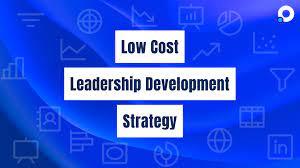As per psychologists entitlement is a personality trait that creates an unrealistic and inappropriate expectation. It creates a belief that a person deserves preferences and resources. Culture of entitlement at the workplace creates an environment where the employees have an increased sense of expectation of benefits and perks. The employees believe they are entitled to these benefits irrespective of the work done by them and solely on the grounds that they are the employees.
The culture of entitlement disturbs a positive workspace. The culture of entitlement lowers the standards of an organization. It does this by destroying motivation and lowering productivity. At the workplace, people who perceive themselves to be entitled also believe that their work is of more value and therefore should be appreciated more than the other’s irrespective of its quality. In addition, rather than taking responsibility and improving upon their own work, they blame others for poor performance by the organization. This attitude of entitlement of the employee makes it challenging for them to accept constructive criticism and feedback on their work. This, in turn, leaves no scope for improvement and advancement.
This is a large problem As per national professionalism survey workplace report, 27.5% of the respondents point to the sense of entitlement as the reason for a decrease in the percentage of new employees exhibiting professionalism in their first year of work. Moreover, over half of the respondents, 52.9%, believe that the sense of entitlement has increased during the past five years.
Psychological research has established that entitlement is correlated with undesirable workplace practices such as unethical behavior, corruption, conflict with supervisors, and low levels of job satisfaction. Moreover, while entitlement is a trait found in every generation, it is far more common amongst the millennials.
Consequently, with more millennials coming into the workforce, the culture of entitlement is likely to grow. Therefore for a healthier working environment, it is substantial to curb entitlement.
Entitled employees display an inflated sense of self-importance. They expect rewards and praises regardless of their performance. In addition, they demand higher responsibility regardless of their experience and accomplishment. According to the Society of Human Resources, 40 percent of Millennials expect a promotion every one to two years. Moreover, entitled employees are individual players rather than a team player. This disrupts the work environment and may, further, cause damage to the organization.A culture of entitlement can be reduced Here are few things one can do to constrain the culture of entitlement at the workplace.
Calling out entitlement and driving corrective action The primary and the most substantial step towards terminating the culture of entitlement is acknowledging the said culture and making its presence know. This is done by pointing out the acts that indicate entitlement and at the same time, treating the entitled employee similarly like the other employees. Not giving any employee preference and instead, acting towards all the employees alike reduces entitlement. As per research, making entitled people feel equal to other employees makes them feel less entitled. This is for the reason that the key component for entitlement is feeling better and different than others. Hence, when the entitled employees feel no special or superior to the others, their entitlement would decrease leading to a decrease in the culture of entitlement.
Drive action and ownership through direct conversation Setting clear expectations as well as being transparent about the effort, performance, and behavior expected at work and the workplace reduces the culture of entitlement.
Employees who want to take ownership and want to be held accountable, grow and help the growth of the organisation. They are open to constructive criticism and thereby, improve their performance through it. Improved performance of the employees, in turn, improve the performance of the organisation.At the same time, creating an environment with a high level of ownership and accountability would promote a more professional environment which would result in the employees being more motivated to perform their best.
Bringing out the adult pactBeing mature and professional is a substantial trait amongst the employees of an organization. There is a certain code of conduct in every workplace. These include being dependable and respectful and most importantly, to be proactive in upgrading professional skills. Having a sense of responsibility and having space for personal growth is important for a supportive professional environment. Along with this, instead of blaming others for wrongs, it is vital that the employees work together, as a team, for benefit of the organisation.
Employees with a diverse and great set of skills help in the expansion of business and consequently also help in ending the culture of entitlement. Taking steps to curb entitlement and to correct the damage done by it is necessary in order to have healthy teams and optimal organizations. Greenlatte helps to establish a zero-tolerance policy against the culture of entitlement and helps to eliminate any emerging entitlement.
Originbluy helps reduce a culture of entitlement in organizations. Call us at +9198190 48886 or e-mail us at vivek.slaria@originbluy.com to know more.



























